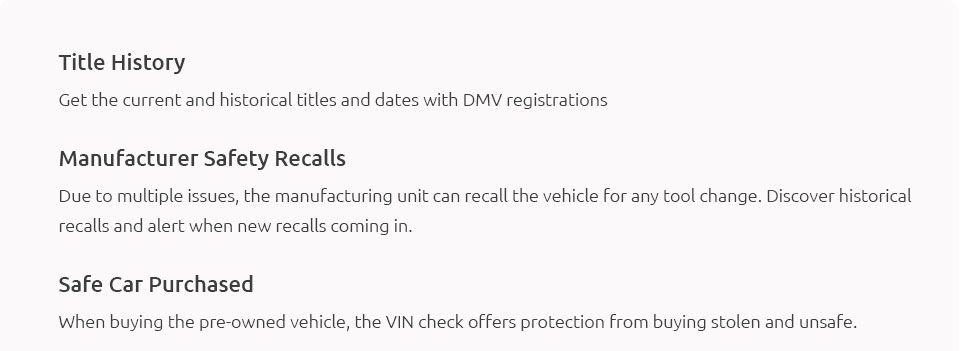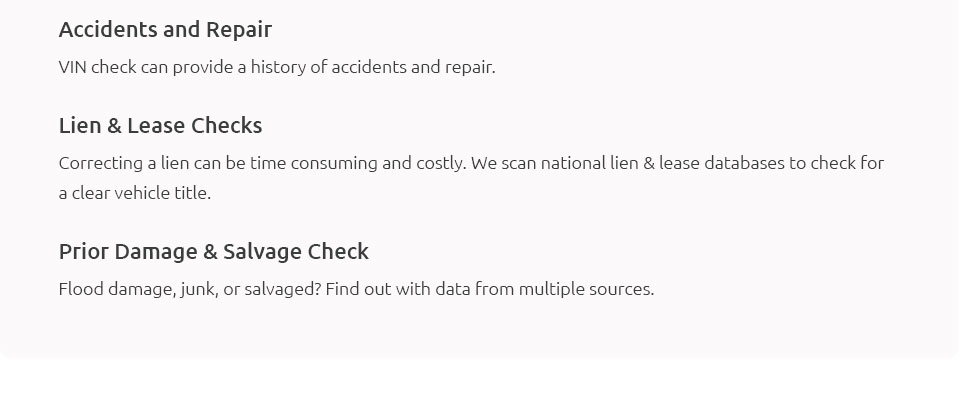 |
 |
 |
 |
 |
||
 |
 |
|
 |
 |
|
 |
 |
 |
 |
||
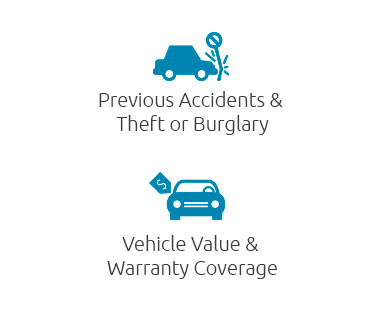 |
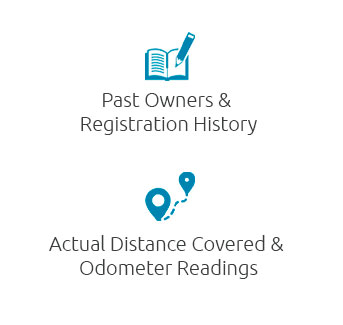 |
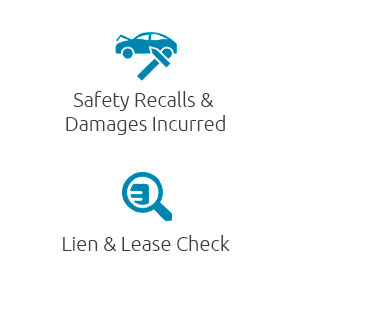 |
 |
 |
 |
||||
|
||||
 |
 |
Understanding VIN Search for Year, Make, and ModelWhen it comes to purchasing a vehicle, whether it's a brand-new car or a charming vintage automobile, the importance of conducting a thorough VIN search for the year, make, and model cannot be overstated. The Vehicle Identification Number, more commonly referred to as the VIN, serves as a unique fingerprint for every car on the road. This alphanumeric code provides invaluable insights into a vehicle’s history, helping potential buyers make informed decisions. But what exactly should one expect from a VIN search, and what are the pros and cons of using this tool? Firstly, let’s delve into what a VIN search entails. A standard VIN search can reveal a plethora of information about a vehicle. From its manufacturing details to its service history, a comprehensive VIN search can unlock a trove of data, including accident reports, title issues, and even past ownership details. For those interested in antique vin number check, this tool becomes even more critical, as vintage vehicles often have complex histories that can affect their value and performance. On the positive side, one of the most significant advantages of a VIN search is its ability to uncover hidden issues. For instance, it can identify if a vehicle has been stolen or if it has been salvaged and rebuilt, which might not be apparent to the naked eye. This aspect is crucial for buyers who prioritize safety and reliability. Additionally, verifying the year, make, and model ensures that the vehicle has not been misrepresented by the seller, offering peace of mind and protection against potential fraud. However, like any tool, a VIN search is not without its limitations. The accuracy of the information retrieved largely depends on the data sources and how frequently they are updated. Some older vehicles might not have comprehensive records available, which can be a drawback for enthusiasts of classic cars. Moreover, while a VIN search provides extensive information, it is not a substitute for a professional inspection. Mechanical conditions, which might not be documented in public records, require a trained eye to identify. Furthermore, the privacy aspect is a point of contention for some. While VIN searches are a boon for transparency, they also raise questions about privacy, as they make vehicle histories accessible to anyone with the VIN. This ease of access can be both a blessing and a curse, especially if sensitive information is inadvertently exposed. In conclusion, while conducting a VIN search is a crucial step in the vehicle purchasing process, it should be complemented with other measures such as a mechanical inspection and a test drive. For those in Tennessee, conducting a tennessee vin check can provide localized insights that are especially useful given the state-specific regulations and conditions that may affect a vehicle's history. As with any tool, understanding its capabilities and limitations is key to leveraging it effectively. In the end, a VIN search is a powerful ally in the quest for a reliable vehicle, offering a window into the past that can help guide future decisions. https://uaw.org/standing-committees/union-label/how-to-read-your-vin/
Here is where you can find UAW made products, vehicles and how to read your VIN. What's in a Vin? WHAT IS A VIN ... https://www.team-bhp.com/advice/find-your-cars-date-manufacture-vin
Automotive manufactures around the world use a Vehicle Identification Number (VIN) that can be decoded to reveal the Month & Year of production. https://www.lithia.com/research/how-to/how-to-decode-your-cars-vin-number.htm
The VIN number tells you when and where the car was built. It tells you the manufacturer, year, make and model, and the trim level including unique features and ...
|

